Discover SOLVED with Mark Manson
SOLVED with Mark Manson

 SOLVED with Mark Manson
SOLVED with Mark Manson
Author: Mark Manson
Subscribed: 64,812Played: 649,558Subscribe
Share
© Copyright 2025 Infinity Squared Media
Description
Mark Manson is a three-time #1 New York Times bestselling author and 20-year personal development industry veteran. Solved is the most comprehensive, evidence-based, overly-researched podcast on the planet to help you get an issue in your life, err... solved.
85 Episodes
Reverse
This is the episode I’ve been waiting to make for a long time. Purpose has been at the core of everything I’ve written and done for over a decade—and in this episode, we go all the way down the rabbit hole. From Viktor Frankl surviving Auschwitz to the myth of “finding your one true purpose,” we break down what purpose really is, why you feel lost without it, and how you can build it into your life.
We also get uncomfortable (in the best way) and talk about the dark side of purpose—how it can burn you out, trap you in toxic ambition, or become an excuse to ruin your life.
And I have a very special announcement to make: Today, I’m launching a new app called Purpose. It’s an AI-powered mentor for personal growth. You talk to it about whatever you’re facing—stress, decisions, conflicts, goals—and it helps you make sense of things. Purpose listens, reflects back what matters most, and turns big challenges into small, actionable steps. The more you use it, the more personalized and helpful it becomes.
Get started in the app with a free course on finding your purpose at
https://purpose.app/solved
We also put together a free companion guide for this episode with takeaways and tools to help you get your sh*t together once and for all. Download it here: https://solvedpodcast.com/purpose
Chapters:
(00:00) Introduction
(01:39) Victor Frankl and Finding Purpose in the Darkness
(17:20) Chapter 1: Foundations: What Is Purpose?
(25:44) Myths
(32:50) Definition
(34:55) Health
(39:22) Resilience and Purpose
(45:34) Chapter 2: Philosophical & Historical Perspectives on Purpose
(52:47) Religion and Purpose
(58:31) Descartes
(1:00:11) Hume
(1:04:51) Nietzsche
(1:17:43) Kierkegaard
(1:22:50) Ernest Becker
(1:30:16) Picasso
(1:31:26) Chapter 3: The Psychology of Purpose
(1:36:38) Relationships
(1:45:40) Ego Identity
(1:49:19) Social Aspect of Purpose
(1:52:32) Religiosity
(2:05:14) Going back to Religion
(2:08:13) Chapter 4: The Four Stages of Life
(2:19:41) Trade off to Purpose
(2:23:48) Transitioning in Purpose
(2:31:33) Chapter 5: The Dark Side of Purpose
(2:40:38) Purpose App
(2:51:36) Burnout
(2:54:29) Toxic Purpose
(3:07:25) Chapter 6: Finding and Cultivating Purpose
(3:27:04) Breakdown on finding Purpose
(3:36:56) Chapter 7: Finding Purpose in Work (or Not)
(3:52:55) Parenting
(4:01:00) Contributing to your community
(4:04:05) Hobbies
(4:09:14) Chapter 8: Practical Tools and Frameworks
(4:20:18) Purpose Setting
(4:22:17) Finding the right tool
(4:24:48) Chapter 9: The 80/20 of Living with Purpose
(4:34:24) Takeaways
Learn more about your ad choices. Visit megaphone.fm/adchoices
We all compare ourselves to other people—our friends, coworkers, strangers on the internet—and most of the time, it makes us feel like shit. But why do we keep doing it? In this episode of Solved, we dig into the uncomfortable truth behind social comparison, how it quietly ruins our self-worth, and why most of what we envy in others is a projection of our own insecurity.
We also get into the brutal paradox of success, the toxic loop of chasing status, and how the constant measurement of our lives against others is one of the dumbest things we do as a species. If you’ve ever felt not good enough, or like you’re falling behind, this one’s for you.
We also put together a free companion guide for this episode with all the takeaways, references, and tools to help you get your sh*t together once and for all. Download it here: https://solvedpodcast.com/socialcomparison
Ready to stop listening to podcasts and actually start taking action? Join Momentum, a community of like-minded people who are taking small steps every day to make big changes in their lives: https://findmomentum.com/socialcomparison
Sign up for my newsletter, Your Next Breakthrough. It will help make you a less awful person: https://markmanson.net/breakthrough
Chapters:
0:00 Introduction
5:29 Chapter 1: Evolutionary Roots
16:20 The Emotional Toolkit
20:18 Chapter 2: Philosophy and Social Comparison
23:31 The Buddhist Path
24:58 Aristotle
34:34 Stoicism
36:24 Existentialism
40:06 Myths
48:37 Chapter 3: The Psychology of Social Comparison
58:54 Downward Comparison
1:22:19 Chapter 4: Digital Technology and Social Comparison
1:44:20 Chapter 5: The 80/20 of Managing Comparison
1:57:40 Hidden Costs
1:58:48 Takeaways
Learn more about your ad choices. Visit megaphone.fm/adchoices
Friendship is the most important thing nobody talks about. In this episode of The SOLVED Podcast, Drew and I dig into what makes friendships work, why they fall apart, and why so many of us are struggling to build or keep them as we get older. We’re talking loneliness stats, Darwin’s confusion about cooperation, and the deep emotional mechanics behind being a good friend—and finding one.
From ancient philosophy to game theory, we break down why friendship isn’t just some social nicety—it’s a biological survival strategy. Plus: the modern forces slowly strangling our ability to connect, and exactly what to do about it. You’ll walk away with a clearer sense of what real friendship looks like, how to build it, and how to stop shooting yourself in the foot every time you try.
We also put together a free companion guide for this episode with all the takeaways, references, and tools to help you get your sh*t together once and for all. Download it here: https://solvedpodcast.com/friendship
Ready to stop listening to podcasts and actually start taking action? Join Momentum, a community of like-minded people who are taking small steps every day to make big changes in their lives: https://findmomentum.com/friendship
Sign up for my newsletter, Your Next Breakthrough. It will help make you a less awful person: https://markmanson.net/breakthrough
Chapters:
0:00 Introduction
7:52 Chapter 1: Friendship: an Evolutionary Puzzle
25:45 Chapter 2: What Is Friendship?
27:11 Friendship in the Great Religious Traditions
37:21 Modern Psychology's Definition of Friendship
49:02 Chapter 3: Your Brain On Friendship
1:03:34 The Neurobiology of Connection
1:22:48 Health Benefits of Friendship
1:33:11 Chapter 4: How to Make and Maintain Friendships
1:35:19 Proximity and Repeated Contact and Reciprocal Disclosure
1:53:51 Time investment (quantity and cadence)
1:58:15 Evidence-Based Strategies for Making Friends
2:07:46 Examples Of Making Friends
2:26:50 Chapter 5: How Friendship Changes Across the Lifespan
2:54:18 Chapter 6: Gender Dynamics in Friendships
3:09:39 Can Men And Women Be Friends?
3:16:39 Chapter 7: Toxic Friendships
3:17:41 Competitive Friendship
3:21:18 Codependency
3:34:45 Chapter 8: Why It's So Hard to Make Friends These Days
3:35:48 External Headwinds: Why Getting Together Is Hard
3:53:18 Internal Frictions: Why Staying Equal Feels Impossible
4:02:45 Chapter 9: Technology's Double-Edged Impact on Human Connection
4:11:19 Mark's LA Story
4:20:21 Chapter 10: The 80/20 of Friendship
4:30:33 Chapter 11: The Trade-Offs of Friendship
Produced by Drew Birnie
Research by Zenya Giatzoglou, Katherine Wei, & Gage Greer
Edited by SJ van Breda
Director of Photography Jess Choi
Thumbnail by Jonathan Sippel
Learn more about your ad choices. Visit megaphone.fm/adchoices
What does it actually mean to live like a Stoic? In this wide-ranging conversation with bestselling author and modern Stoicism evangelist Ryan Holiday, we unpack the origins of Stoic philosophy, why it exploded during turbulent times in ancient Greece and Rome, and how its principles—like courage, temperance, justice, and wisdom—still apply in a world filled with chaos, anxiety, and uncertainty. From shipwrecked merchants to emperors journaling their fears, this episode explores why some of the most powerful figures in history turned to Stoicism not just for answers—but for survival.
We also dig into how Stoicism overlaps with modern psychology, why it’s gaining traction among young men, and whether its rising popularity is being misunderstood or misused. If you’ve ever wondered whether Stoicism means being emotionless, if it’s compatible with ambition, or if it actually makes you a better person, this episode is your one-stop masterclass.
Order Ryan Holiday’s new book, Wisdom Takes Work: https://www.amazon.com/Wisdom-Takes-Work-Repeat-Virtues/dp/0593191730
We also put together a free companion guide for this episode with all the takeaways, references, and tools to help you get your sh*t together once and for all. Download it here: https://solvedpodcast.com/stoicism
Ready to stop listening to podcasts and actually start taking action? Join the Solved Community, a platform for like-minded people who are taking small steps every day to make big changes in their lives: https://membership.solvedpodcast.com
Sign up for my newsletter, Your Next Breakthrough. It will help make you a less awful person: https://markmanson.net/breakthrough
Produced by Drew Birnie
Research by Zenya Giatzoglou, Katherine Wei, & Gage Greer
Edited by SJ van Breda
Director of Photography Jess Choi
Thumbnail by Jonathan Sippel
Chapters:
00:00 Introduction
02:49 Setting the Scene: Ancient Greece After Alexander
06:44 The Story of Zeno: Founder of Stoicism
13:58 The Four Stoic Virtues
44:20 Virtue 1: Courage
53:17 Virtue 2: Temperance (Discipline)
1:05:01 Virtue 3: Justice
1:08:51 Virtue 4: Wisdom
1:25:51 Roman Conquest and the Spread of Stoicism
1:33:10 Cato the Younger: The Stoic Martyr
1:39:06 Seneca: The Conflicted Philosopher
1:55:50 Epictetus: The Slave Philosopher
2:07:28 Marcus Aurelius: The Philosopher Emperor
2:20:18 Stoicism Through History
2:32:45 Stoicism and Modern Psychology
2:41:09 The Modern Stoicism Revival
2:50:06 Final Thoughts and Recommendations
Learn more about your ad choices. Visit megaphone.fm/adchoices
Resilience isn’t about pretending you’re fine or never feeling pain—it’s about learning how to act in your best interest despite the pain. In this episode of Solved, we dive deep into the science, psychology, and real-life examples of resilience—from Ernest Shackleton’s crew surviving two years stranded in Antarctica to my own slightly insane decision to run an endurance race with basically no training. Spoiler: I didn’t die.
We cover it all: the biology of resilience, why some people are “dandelions” and thrive anywhere while others are “orchids” who need the right environment, the mindsets that let you push through hardship without losing your mind, and why humor and community might secretly be your best survival tools. And of course, we deliver the real, practical, evidence-based strategies you can actually apply when life inevitably decides to kick you in the teeth.
If you’ve ever felt overwhelmed, stuck, or like you can’t take one more setback, this episode is for you. And if you’re one of those psychos who enjoys doing hard sh*t just to see what you’re made of… well, you’ll feel right at home here.
We also put together a free companion guide for this episode with all the takeaways, references, and tools to help you get your sh*t together once and for all. Download it here: https://solvedpodcast.com/resilience
Ready to stop listening to podcasts and actually start taking action? Join the Solved Community where you can interact with like-minded people who are taking small steps every day to make big changes in their lives: https://membership.solvedpodcast.com/
Sign up for my newsletter, Your Next Breakthrough. It will help make you a less awful person: https://markmanson.net/breakthrough
Chapters:
00:00 Introduction
04:44 Chapter 1: Reframing Resilience — Definitions & Misconceptions
13:11 The Word That Started It All
16:30 Bounce Forward, Not Back
23:50 Chapter 2: Developmental and Biological Foundations of Resilience
29:26 The Evolutionary Puzzle
38:54 Chapter 3: Biological & Physiological Foundations
44:45 Training Your Brain to Be More Resilient
48:43 The HPA Axis: Our Central Stress Response System
51:19 Heart Rate Variability: The Resilience Rhythm
54:32 Physiological Interventions
1:00:07 Gut-Brain Axis
1:17:17 Chapter 4: Psychological, Philosophical & Evidence-Based Frameworks
1:20:19 The 5 Mindsets of Resilience
1:21:46 Mindset #1: Anything Is Possible
1:38:22 Mindset #2: Stories Are Just Stories
1:44:16 MIndset #3: Focus on What You Control
1:58:55 Mindset #4: Make It Fun
2:10:34 Mindset #5: Assume a Resilient Identity
2:20:21 Pheidippides
2:27:00 Chapter 5: Sociocultural & Community Dimensions
2:37:40 Social Connection and Resilience: Why Strong People Don't Go It Alone
2:45:33 Blitz Spirit: Myth vs Reality
2:48:23 How to Build Your Resilient Circle
2:57:28 Chapter 6: The 80/20 of Becoming More Resilient
3:11:36 The Hidden Costs of Resilience
3:22:25 What We Learned
Follow me:
https://instagram.com/markmanson/
https://twitter.com/IAmMarkManson
https://facebook.com/Markmansonnet/
https://linkedin.com/in/markmanson/
https://www.tiktok.com/@iammarkmanson
Learn more about your ad choices. Visit megaphone.fm/adchoices
Chances are, there’s something in your life you feel deeply ashamed about—something you’ve never told anyone, something you can’t even admit to yourself. In this episode, we go deep into the emotion we all experience but almost no one wants to talk about: shame. Where it comes from, why it’s so powerful, how it screws up our lives—and more importantly, how to deal with it.
We cover the biology of shame, the psychology, the evolutionary roots, and how modern life (especially the internet) completely messes with our shame systems. We talk about healthy vs. toxic shame, how it shows up in addiction, relationships, perfectionism, and self-sabotage, and why most of us either try to hide from it or end up being controlled by it. You’ll also hear from members of my team about how shame shaped their lives in surprising ways.
As always, this episode is brutally honest, deeply researched, and sprinkled with a few bad jokes. But more than anything, I hope it gives you the awareness—and the tools—to start facing whatever it is you’ve been avoiding. Because you can’t outrun your shame. But you can learn to live with it.
We also put together a free companion guide for this episode with all the takeaways, references, and tools to help you get your sh*t together once and for all. Download it here: https://solvedpodcast.com/shame
Ready to stop listening to podcasts and actually start taking action? Join the Solved Community, a group of like-minded people who are taking small steps every day to make big changes in their lives: https://findmomentum.com/shame
Sign up for my newsletter, Your Next Breakthrough. It will help make you a less awful person: https://markmanson.net/breakthrough
Chapters
00:00:00 Introduction
00:04:35 Chapter 1: Shame's Hidden Architecture
00:14:38 Chapter 2: Key Definitions
00:18:32 Distinguishing Shame from Guilt
00:20:49 State Shame vs. Trait Shame
00:21:47 Shame vs. Embarrassment and Humiliation
00:24:03 Shame, Trauma, and their Interrelationship
00:25:14 Chapter 3: The Neurobiology of Shame
00:29:56 The Shame Spiral
00:36:04 The Learning Paradox of Shame
00:44:12 Chapter 4: The Shame Compass
00:47:33 Personal Experiences with Shame
00:49:21 Workaholism as a Coping Mechanism
00:59:13 The Allure of Shamelessness
01:01:15 Chapter 5: Individual, Familial, & Cultural Sources of Shame
01:11:05 Geographical Impact on Shame
01:13:08 Cultural Values and Shame
01:14:35 How the Greater Culture Shapes Shame
01:26:12 Chapter 6: Digital Technology & Shame 2.0
01:28:02 The Digital Divide
01:31:05 The Relationship Between Technology and Anxiety
01:33:55 Protection Strategies
01:39:21 Chapter 7: Developmental Stages of Shame
01:40:19 Understanding the Origin of Shame
01:42:57 The Role of Parenting in Shame Development
01:56:49 Chapter 8: How Therapy Transformed Our Understanding of Shame
02:01:06 Carl Rogers and the Safety Revolution
02:07:31 Albert Ellis and the Cognitive Revolution
02:11:58 The Influence of Albert Ellis and Carl Rogers
02:13:31 The Emergence of Reparenting and Inner Child Work
02:17:18 The Rise of Internal Family System
02:20:24 Brene Brown's Work on Shame
02:27:59 Chapter 9: Tools to Address Your Shame
02:40:19 Stoic Principles for Perspective
02:47:05 Perspective Shifting Techniques
02:58:26 Chapter 10: Tuning Your Shame System
03:10:39 Recognizing Unsustainable Shame Patterns
03:16:28 Kristen Neff's Self-Compassion Framework
03:25:33 Understanding Shame as Obsession and Resentment
03:29:53 Overcoming Shame and Personal Growth
03:31:39 Takeaways fr...
Learn more about your ad choices. Visit megaphone.fm/adchoices
Everyone’s obsessed with being happy—but what if that obsession is the very thing making us miserable? In this episode of Solved, Drew and I explore what actually makes us feel good—and why most of us are chasing it in all the wrong ways.
We unpack what philosophers like Aristotle and the Buddha got right thousands of years ago—and how modern science is just now catching up. We talk about hedonic vs. eudaimonic happiness, why more money and status don’t necessarily move the needle, and why most self-help advice completely misses the point. Happiness isn’t something you get. It’s a side effect of doing the right things for the right reasons.
So, if you're tired of chasing "more" and ready to actually feel a little less miserable, this one’s for you.
We also put together a free companion guide for this episode with all the takeaways, references, and tools to help you get your sh*t together once and for all. Download it here: https://solvedpodcast.com/happiness
Ready to stop listening to podcasts and actually start taking action? Join Momentum, a community of like-minded people who are taking small steps every day to make big changes in their lives: https://findmomentum.com/happiness
Sign up for my newsletter, Your Next Breakthrough. It will help make you a less awful person: https://markmanson.net/breakthrough
Chapters:
0:00 Introduction
10:42 Chapter 1: The Origins of Human Happiness
11:04 Hedonia vs Eudaimonia
15:11 Epicureanism
23:20 Eastern Perspectives
27:15 Modern Happiness Research
29:30 Chapter 2: The WEIRD Problem: When Happiness Research Goes West
40:47 Chapter 3: The Three Components of Happiness
46:44 Hedonic Adaptation
59:53 Chapter 4: What Does—and Doesn't—Make Us Happy
1:00:35 Drugs and Alcohol
1:07:23 Sex
1:15:09 Money
1:23:10 Fame and Status
1:37:26 Geography and Environment
1:39:51 Love and Relationships
1:41:19 Friendships
1:44:04 Having Children
1:49:10 The Experiencing vs. Remembering Self
1:52:53 Chapter 5: Baseline vs. Circumstantial vs. Intentional Happiness
1:53:35 Genetics
1:59:50 Circumstances
2:02:16 Intentional Actions
2:06:13 Relationships
2:10:51 Gratitude
2:13:13 Altruism
2:18:47 Experiences vs. Stuff
2:22:12 Implementing Intentional Happiness
2:24:21 Chapter 6: Don't Pursue Happiness; Remove Unhappiness
2:29:05 Social Comparison
2:31:30 Maximizers vs. Satisficers
2:34:19 Chapter 7: How Happiness Changes Across the Lifespan
2:51:44 Chapter 8: Happiness Myths
3:04:47 Chapter 9: The 80/20 Guide to Happiness
3:16:22 Lessons Learned
Learn more about your ad choices. Visit megaphone.fm/adchoices
What are emotions? Why do we feel anything at all? And more importantly — can we actually get better at feeling?
In this episode, Drew and I dive headfirst into what might be the hardest question in all of psychology: what the actual f**k are emotions? We break down the biology, neuroscience, evolution, culture, and even language that shape how we feel — and why we often don’t understand what the hell is going on inside us. From ancient philosophy to brain scans, this is a deep (and occasionally weird) look into the emotional chaos that makes us human.
We unpack everything from the origins of emotional intelligence (spoiler: it might be BS) to the science of emotional regulation, attachment styles, and the sneaky ways your culture wires your emotional defaults. Along the way, we explore why some relationships make you feel like a better person while others drain the life out of you, and how trauma, genetics, and childhood with your ability to keep it together.
But this episode isn’t just about understanding emotions — it’s about learning how to work with them. And we give you a full emotional toolkit: a set of evidence-based tools to help you manage your emotions, build better relationships, feel more motivated, and yes — even feel more confident in yourself in the process.
We also put together a free companion guide for this episode with all the takeaways, references, and tools to help you get your sh*t together once and for all. Download it here: https://solvedpodcast.com/emotions
Ready to stop listening to podcasts and actually start taking action? Join Momentum, a community of like-minded people who are taking small steps every day to make big changes in their lives: https://findmomentum.com/emotions
Sign up for my newsletter, Your Next Breakthrough. It will help make you a less awful person: https://markmanson.net/breakthrough
Chapters:
0:00:00 Introduction
0:04:47 Chapter 1: What Are Emotions?
0:14:04 The Emotional Brain
0:22:03 Neurotransmitters
0:34:25 Evolution of Emotions
0:39:53 How Life Experiences Shape Emotional Regulation
0:48:41 Conclusion on What are Emotions
0:49:45 Chapter 2: How Culture Influences Our Emotions
0:55:44 Vietnam Bike Story
1:00:05 Your Culture Trains You to Want Certain Feelings
1:06:00 Culture Decides Whether Suppression is a Superpower or a Liability
1:07:56 Paradox of Emotional Conformity
1:16:36 How Language Shapes What You Feel
1:29:23 Emotional Complexity
1:36:25 Your Emotions Are Social Currency
1:43:00 Conclusion to Culture defines our emotions
1:44:08 Chapter 3: Historical and Philosophical Traditions on Emotions
1:57:21 Modern Culture
1:59:00 Chapter 4: The Four Schools of Emotional Regulation
2:00:56 The Heart
2:08:55 The Head
2:18:37 The Soul
2:28:50 The Body
2:36:23 The Integrated Toolkit
2:48:25 Chapter 5: Brilliant or Bullshit: Emotional Intelligence
2:57:31 Chapter 6: Relationships and Emotional Regulation
3:09:54 Attachment Theory
3:27:29 Toxic Relationship
3:36:49 Building Emotional Compatibility
3:51:24 Conclusion Relationships
3:57:24 Chapter 7: 80/20
Learn more about your ad choices. Visit megaphone.fm/adchoices
In this second episode of Solved, Drew and I go deep into the psychology, history, and science of procrastination. From Plato and Aristotle to Freud and modern research, we break down why we delay the things that matter most—and how to actually stop.This isn't a “just set a timer” productivity talk. We’re diving deep into shame, identity, perfectionism, culture, and why procrastination is ultimately a *skill issue*, not a moral failure. We cover things like:- How humans have thought about putting things off for over 2000 years- The real reason you avoid the most important tasks in your life- Why “I work better under pressure” is (usually) BS- Why self-compassion is actually more motivating than guilt- Tons of practical, research-backed strategies you can start using todayAnd much, much, much more.
We also put together a free companion guide with all the takeaways, references, and tools to help you get your sh*t together once and for all. Download it here : https://solvedpodcast.com/procrastination
Ready to stop listening to podcasts and actually start taking action? Join Momentum, a community of like-minded people who are taking small steps every day to make big changes in their lives: https://findmomentum.com/procrastination
Sign up for my newsletter, Your Next Breakthrough. It will help make you a less awful person: https://markmanson.net/breakthrough
Chapters
00:00 Introduction
01:05 Episode Roadmap
08:20 What exactly is procrastination?
15:50 Plato's Thoughts on Procrastination
24:07 The Buddhist & Confucian Views on Procrastination
26:19 Aristotle's Take on Procrastination
33:50 Christianity and Procrastination
46:53 Self-Compassion and Procrastination
58:45 The Reformation and Procrastination
1:04:25 Freud's Influence on Psychology
1:06:40 Pleasure Principle and Reality Principle
1:08:13 Id, Ego, and Superego
1:10:26 Defense Mechanisms
1:17:20 Adopting Habits as Identity
1:23:05 The Influence of Childhood and Parenting on Procrastination
1:33:42 Behaviorism
1:41:21 Environmental Design
1:46:10 Thriving Under Pressure: A Critique
1:52:10 Expectation, Pressure, and Procrastination
1:54:06 Critique of Behaviorism
1:59:20 Time Management
2:07:33 Knowledge vs Emotion in Procrastination
2:16:43 Mark and Drew's Personal Productivity Systems
2:20:37 Deep Work and Task Management
2:23:12 Productivity System for ADHD
2:29:26 Productive Procrastination
2:34:22 Importance of Task Completion
2:36:51 Existentialism and Purpose
2:44:21 Purpose and Motivation
2:53:40 Temporal Motivation Theory
2:57:39 Limitations of Temporal Motivation Theory
2:59:22 The Role of Technology in Procrastination
3:07:10 ...
Learn more about your ad choices. Visit megaphone.fm/adchoices
Welcome to the first episode of the Solved Podcast. Today, we are solving your values.
Over eight years ago, I wrote The Subtle Art of Not Giving a F*ck—a book that, underneath all the swearing and irreverence, was really about one thing: values. What do you care about? What’s actually worth your time, your energy, your life?
So in this kickoff episode of SOLVED, Drew and I are going deep into why your values are the foundation of everything—your happiness, your mental health, your relationships, your sense of meaning—and why so many of us today feel so lost.
We break down the difference between chasing cheap dopamine hits and building real fulfillment, why not all values are created equal, how to figure out what your true values are, how to change your values, how to start living out your values more fully, and how values silently shape your decisions and relationships every day. If you’ve ever felt stuck, directionless, or like you’re living someone else’s life, this episode is the wake-up call you need. It’s time to stop drifting through life and start giving a fck about the right things. Forget the rest.
Welcome to SOLVED.
Get the Values companion guide for this episode: https://solvedpodcast.com/values
Ready to stop listening to podcasts and actually start taking action? Join the Momentum, a community of like-minded people who are taking small steps every day to make big changes in their lives: https://findmomentum.com
Chapters
00:00 Welcome to SOLVED
07:47 Episode Roadmap
09:31 CHAPTER 1: What are Values?
10:26 Characteristics of Values
14:23 Values vs. Psychological Needs vs. Preferences
23:06 Schwartz's Values Wheel
30:36 Instrumental and Terminal Values
32:15 Hierarchy of Values
38:35 Values Conflict
42:35 Carol Ryff's Six Dimensions of Psychological Well-being
57:01 Aristotle's Golden Mean as Virtue
1:05:01 CHAPTER 2: Values and Your Relationships
1:22:56 The Clash of Values in Relationships
1:30:29 Identifying and Navigating Values in Relationships
1:34:40 Understanding Compatibility Through Values
1:37:25 CHAPTER 3: Where Do Values Come From?
1:38:20 Margaret Mead's Cultural Relativism
1:47:55 Mary Douglas's and the Grid-Group Framework
1:56:20 Jonathan Haidt's Moral Foundations Theory
2:09:26 The Allegory of the Taco Truck
2:14:34 CHAPTER 4: Identifying Your Core Values
2:16:58 Thought Experiments to Find Your Values
2:32:16 The Instrumental Value of Golf
2:41:45 The Role of Trauma in Value Change
2:48:53 CHAPTER 5: How to Change Your Values
2:50:44 Kazimierz Dabrowski and Positive Disintegration
3:03:22 On Cults and Cognitive Dissonance
3:16:26 Self-Confrontation and Value Change
3:18:34 Charlie Munger's Maxim: Incentives and Behavior
3:21:56 CHAPTER 6: Lessons and Takeaways
3:36:30 T...
Learn more about your ad choices. Visit megaphone.fm/adchoices
New podcast launches May 1st! We'll be releasing on this same feed, so all you have to do is stay subscribed to this channel and you'll get all the new episodes as they come out.
***
After more than 70 episodes and 30 million downloads, I’ve decided to shut down The Subtle Art of Not Giving a F*ck Podcast. Yeah, I know—sounds a little crazy. But the truth is, I wasn’t having fun anymore. The guest treadmill, the pressure to play nice, the temptation to chase clicks instead of meaning—it all started to feel fake. So, I’m pulling the plug.
BUT—I’m not going away. I’m launching something new. It’s called Solved—a no-ads, no-guests, deep-dive podcast where each episode tackles one major life topic and breaks it down thoroughly. Think: values, emotions, procrastination—done right, from every angle, with real research and clear implementation. It’s the podcast I wish already existed. So I’m making it. First episode drops May 1 st!
Sign up for my newsletter, Your Next Breakthrough. It will help make you a less awful person: https://markmanson.net/breakthrough
Follow me:
https://instagram.com/markmanson/
https://twitter.com/IAmMarkManson
https://facebook.com/Markmansonnet/
https://linkedin.com/in/markmanson/
https://www.tiktok.com/@iammarkmanson
Learn more about your ad choices. Visit megaphone.fm/adchoices
I’ve got a special episode for you today. I sat down in person with my longtime friend and first-ever podcast guest, Derek Sivers. We haven’t recorded live before, and honestly, it shows—in the best way. It’s raw, weird, and filled with the kind of conversations we usually when we’re just hanging out together.
We dig into Derek’s new book, Useful, Not True, and the big idea behind it: that our beliefs don’t need to be true to be helpful. That spins off into everything from remixing creative influences (metal + Dixieland jazz, anyone?) to why most podcasts—including mine—have gotten painfully predictable. We talk artistic reinvention, Bob Dylan, Bowie, Miles Davis, why most “thought leaders” are just regurgitating each other’s ideas, and why I'm ending the podcast as you know it—and what’s next!
We also dive into the deeper stuff: the emotional power of belief, authenticity vs. performative vulnerability, therapy culture, and why sometimes the most liberating thing you can do is reject what everyone else thinks is necessary—relationships, kids, all of it.
This was one of the most honest, meandering, and creatively energizing conversations I’ve had in a while. If you’re into big questions, unconventional ideas, and the occasional musical metaphor, this one’s for you.
Derek’s new book- Useful, Not True: https://www.amazon.com/Useful-Not-True-Derek-Sivers-ebook/dp/B0D86K4XF5
Sign up for my newsletter, Your Next Breakthrough. It will help make you a less awful person: https://markmanson.net/breakthrough
Follow me:
https://instagram.com/markmanson/
https://twitter.com/IAmMarkManson
https://facebook.com/Markmansonnet/
https://linkedin.com/in/markmanson/
https://www.tiktok.com/@iammarkmanson
Learn more about your ad choices. Visit megaphone.fm/adchoices
In this episode, Drew and I dive into some of the biggest beliefs we’ve shifted over the years—and what it actually looks like to change your mind.
We talk about Drew’s evolving views on religion, why I’m way less convinced that people are as changeable as we like to believe, and why I think trauma might be getting a little too much airtime in the self-help world.
We also get into the loneliness epidemic, the quiet power of community, and why so much of “personal growth” isn’t about becoming someone new—it’s about learning to work with who you already are.
Leave a comment below about what you’ve changed your mind about—and enjoy.
Sign up for my newsletter, Your Next Breakthrough. It will help make you a less awful person: https://markmanson.net/breakthrough
Follow me:
https://instagram.com/markmanson/
https://twitter.com/IAmMarkManson
https://facebook.com/Markmansonnet/
https://linkedin.com/in/markmanson/
https://www.tiktok.com/@iammarkmanson
Chapters
00:00 Intro: What we've changed our minds about
02:59 Religion
07:40 Where does belief change start?
17:08 Does Mark stand by his books?
18:06 Why change is so hard
30:27 Trauma doesn't determine destiny
37:52 Cautious optimism
Theme song: Icarus Lives by Periphery , used with permission from Periphery.
Learn more about your ad choices. Visit megaphone.fm/adchoices
Lewis Howes is one of the most successful podcasters of all time—12 years, nearly 1,800 episodes, and countless interviews with world-class performers. But what’s even more interesting is how his definition of success has evolved over the years. In this conversation, Lewis opens up about shifting from a hyper-competitive, “be number one” mentality to a more collaborative, impact-driven approach.
We also dive into emotional regulation, the surprising ways our relationship with money affects our lives, and why most people either idolize or demonize wealth. Oh, and Lewis casually mentions he’s training to compete in the Olympics in his 40s. No big deal. This episode is packed with insights on what it really means to live a fulfilling, abundant life—without losing your mind in the process.
Get 10% off health services at Marek Health: https://marekhealth.com/idgaf
Lewis's new book, Make Money Easy: https://www.amazon.com/Make-Money-Easy-Financial-Freedom/dp/1401993931
Lewis's podcast, The School of Greatness: https://lewishowes.com/sogpodcast/
Sign up for my newsletter, Your Next Breakthrough. It will help make you a less awful person: https://markmanson.net/breakthrough
Follow me:
https://instagram.com/markmanson/
https://twitter.com/IAmMarkManson
https://facebook.com/Markmansonnet/
https://linkedin.com/in/markmanson/
https://www.tiktok.com/@iammarkmanson
Theme music: Icarus Lives by Periphery, used with permission from Periphery.
Learn more about your ad choices. Visit megaphone.fm/adchoices
Resilience isn’t just about gritting your teeth and enduring pain—it’s about managing the stories you tell yourself. In this episode, I break down why most people get resilience wrong and how mastering the “second arrow” is the real key to bouncing back. We dive into post-traumatic growth, why caring about something bigger than yourself makes you stronger, and how focusing on what you can control changes everything.
We also talk about AI—how it’s not here to save or destroy humanity, but it is going to change everything. We look at how AI is already transforming creative and knowledge-based jobs, why you should be using it right now, and what you can do to stay ahead. Plus, we tackle the ultimate question: Can people change? That three-word question is lot more complex than it seems. Check it out.
Get 30 days of Brain.fm for free at https://brain.fm/idgaf
Get 20% off PLUS a free rechargeable frother and glass beaker with your first purchase of a Pu’er Tea bundle at https://piquelife.com/idgaf
Sign up for my newsletter, Your Next Breakthrough. It will help make you a less awful person: https://markmanson.net/breakthrough
Chapters:
0:00 Mark feels the AGI—Drew does not
3:42 The Fck of the Week: Resilience
25:48 Brilliant or Bullsht: AI will doom/save us all
46:27 Q&A: Can people change?
Follow me:
https://instagram.com/markmanson/
https://twitter.com/IAmMarkManson
https://facebook.com/Markmansonnet/
https://linkedin.com/in/markmanson/
https://www.tiktok.com/@iammarkmanson
Theme song: Icarus Lives by Periphery, used with permission from Periphery.
Learn more about your ad choices. Visit megaphone.fm/adchoices
You know that voice in your head that loves to tell you that you suck? Yeah, that one. The one that compares you to everyone on Instagram, tells you you’re a failure for eating cereal at 11 p.m., and insists you’ll never get your life together. Well, today, we’re calling in a professional to deal with that assh*le. Dr. Julie Smith is a clinical psychologist and viral mental health educator who’s built a massive following by actually making psychology make sense. In this episode, she breaks down how to quiet that inner critic, stop getting crushed by comparison, and reframe your self-loathing into something a little more useful—like self-respect.
We also dig into what it’s like to become internet famous when you’re an introvert, why emotions are not facts (even though they feel like they are), and how to stop letting social media, your parents, and your own bullsh*t beliefs define your worth. Whether you’re stuck in a shame spiral, wondering why life feels pointless, or just trying to figure out how to not hate yourself so much, this episode is for you.
Get a free sample pack with any drink mix purchase at https://drinklmnt.com/idgaf
Use code IDGAF to get 10% your health services at https://marekhealth.com/idgaf
Dr. Julie’s new book, Open When: A Companion for Life's Twists & Turns: https://www.amazon.com/Open-When-Companion-Lifes-Twists-ebook/dp/B0D3CB1XX6
Dr. Julie’s first book, Why Has Nobody Told Me This Before?: https://www.amazon.com/Why-Nobody-Told-This-Before-ebook/dp/B0983L6T32
Sign up for my newsletter, Your Next Breakthrough. It will help make you a less awful person: https://markmanson.net/breakthrough
Follow Dr. Julie:
https://www.youtube.com/@DrJulie
https://www.instagram.com/drjulie
https://www.tiktok.com/@drjulie
https://x.com/drjuliesmith
https://www.facebook.com/DrJulieSmith/
Follow Me:
https://instagram.com/markmanson/
https://twitter.com/IAmMarkManson
https://facebook.com/Markmansonnet/
https://linkedin.com/in/markmanson/
https://www.tiktok.com/@iammarkmanson
Chapters:
0:00 Introduction'
01:21 Using social media to improve mental health?
04:50 How Dr. Julie stays sane
07:01 When Dr. Julie has to take her own advice
14:01 How to deal wit...
Learn more about your ad choices. Visit megaphone.fm/adchoices
Fear of failure isn’t really about failure—it’s about what failure means to us. We’re not scared of messing up; we’re scared of being judged, embarrassed, or proving our worst insecurities right. But the people who actually succeed at anything are the ones willing to suck at it long enough to get good. Today, we break down why failure feels so terrifying, how social comparison messes with our heads, and why the loudest critics are usually the ones who’ve never done a damn thing themselves. Tune in for some practical tips on overcoming all of this.
We also dig into the science of why boredom can spark better ideas, why our addiction to content might be making us less creative, and whether we should all do a digital detox before our brains turn into overstimulated mush. Finally, we wrap things up with a simple but profound question: If life is just an endless series of trade-offs, what are the best problems to have? Because problems never go away—you just get to level up to better ones.
Get one month free at htttps://brain.fm/idgaf
Sign up for my newsletter, Your Next Breakthrough. It will help make you a less awful person: https://markmanson.net/breakthrough
The Creative Benefits of Boredom: https://hbr.org/2014/09/the-creative-benefits-of-boredom
Follow me:
https://instagram.com/markmanson/
https://twitter.com/IAmMarkManson
https://facebook.com/Markmansonnet/
https://linkedin.com/in/markmanson/
https://www.tiktok.com/@iammarkmanson
Theme song: Icarus Lives by Periphery , used with permission from Periphery.
Learn more about your ad choices. Visit megaphone.fm/adchoices
Life in a rock band isn’t all sold-out shows and backstage parties—it’s a high-pressure, all-consuming commitment that tests friendships, sanity, and survival. In this episode, I sit down with Randy Blythe, legendary frontman of Lamb of God, to pull back the curtain on what it really takes to last in the music industry. From the brutal realities of band relationships to the myths of the rockstar lifestyle, Randy shares unfiltered insights on creativity, addiction, and personal transformation.
We also dig into his journey to sobriety, the impact of punk rock’s DIY ethos, and the surprising ways today’s generation is redefining rebellion. Whether you’re a musician, a fan, or just someone navigating your own challenges, this conversation is a raw and inspiring look at resilience, reinvention, and the power of staying true to yourself.
Randy’s books:
Just Beyond the Light: https://www.amazon.com/Just-Beyond-Light-Making-Inside-ebook/dp/B0DJHMN7C1
Dark Days: https://www.amazon.com/Dark-Days-D-Randall-Blythe/dp/0306825090
Sign up for my newsletter, Your Next Breakthrough. It will help make you a less awful person: https://markmanson.net/breakthrough
Follow me:
https://instagram.com/markmanson/
https://twitter.com/IAmMarkManson
https://facebook.com/Markmansonnet/
https://linkedin.com/in/markmanson/
https://www.tiktok.com/@iammarkmanson
Theme music: "Icarus Lives" by Periphery, used with permission from periphery.
Learn more about your ad choices. Visit megaphone.fm/adchoices
Self-help is supposed to, you know, help. But what if, sometimes, it actually makes things worse? In this episode, we take a hard look at the self-improvement industry that promises transformation but often sells little more than feel-good illusions. From outdated advice that preys on your insecurities to the dopamine hit of "life-changing" content that changes nothing, we break down why self-help often fails the people who need it most.
Along with unpacking the biggest traps of self-improvement, Drew and I also tackle whether or not minimalism was just an aesthetic rebellion against our parents’ McMansion dreams. We were both once staunch minimalists and we look back on what we learned and what principles still apply to our lives today. We wrap up with a listener question about the ethics of going to church if you’re an atheist. It’s another grab bag episode full of rabbit holes. Check it out.
Sign up for my newsletter, Your Next Breakthrough. It will help make you a less awful person:https://markmanson.net/breakthrough
Follow me:
https://instagram.com/markmanson/
https://twitter.com/IAmMarkManson
https://facebook.com/Markmansonnet/
https://linkedin.com/in/markmanson/
https://www.tiktok.com/@iammarkmanson
Chapters
00:00 Drew's legs are too short for his chair
00:40 The F*ck of the Week: Self-Help that doesn't help26:23 Brilliant or Bullshit: Minimalism43:05 Q&A: Is it ok for atheists/agnostics to go to church?
Theme song: Icarus Lives byPeriphery, used with permission from Periphery.
Learn more about your ad choices. Visit megaphone.fm/adchoices
Australia, you absolute legends. Back in November, I did a speaking tour across seven cities, talking to thousands of you about life, purpose, relationships, and why giving fewer fucks is the key to actually living a life you don’t hate.
We recorded some of the best Q&A moments to share with you here on the podcast. We diving into the big existential stuff—how to stop procrastinating, how to know if a relationship is right for you, and whether Australia’s ban on social media for kids is actually a good thing or not.
We’ll also talk about the brutal truth behind imposter syndrome, how to stop caring so much about what other people think, and one thing that actually helps you figure out what the hell you should be doing with your life. Plus, I’ll share some hard-earned wisdom on drinking, quitting, and why people stay in bad relationships way too long. So if you’ve ever felt stuck, lost, or just overwhelmed by the sheer absurdity of life, this one’s for you. Hit play and let’s get into it.
Sign up for my newsletter, Your Next Breakthrough. It will help make you a less awful person: https://markmanson.net/breakthrough
Follow me
https://instagram.com/markmanson/
https://twitter.com/IAmMarkManson
https://facebook.com/Markmansonnet/
https://linkedin.com/in/markmanson/
https://www.tiktok.com/@iammarkmanson
Chapters
00:00 Mark goes down under
02:10 How do you discover what truly matters to you?03:45 How can I stop procrastinating so much?07:26 How do you deal with negative thoughts and feelings after a trauma?09:39 How long should I wait on my "experiments" before I move on?13:18 How do you deal with people who want you to tell you how to live your life?14:36 What are some of the hardest things to give up?16:43 What's your best advice on marriage?19:40 Do you think we'll get back together?22:12 Is society rewarding more and more bad behavior?26:10 What are some tradeoffs that more people should do?28:55 What can your books and content teach children?31:57 How do you overcome imposter syndrome?34:00 How to know if your relationship is good enough for you?35:28 How can I deal with being overly empathetic and letting people walk all over me?38:58 What do you think of the ban on kids using social media in Australia?40:47 What's your advice for teenagers?42:44 How do you overcome analysis paralysis?44:38 How can you stop caring about other people's opinions so much?46:56 How can we be more relevant in the AI future?49:20 Why are so many good people not happy?51:46 How do you go about finding your purpose in life?54:38 What should I do if I'm focused too much on other people's problems instead of my own (codependency)?57:42 How do continue to overcome failure after failure?1:00:32 How can I find motivation to do anything when the world is so f*cked?1:04:15 How can we more fully face death, grief, and loss?
Theme song: Icarus Lives by Periphery , used with permission from Periphery.
Learn more about your ad choices. Visit megaphone.fm/adchoices






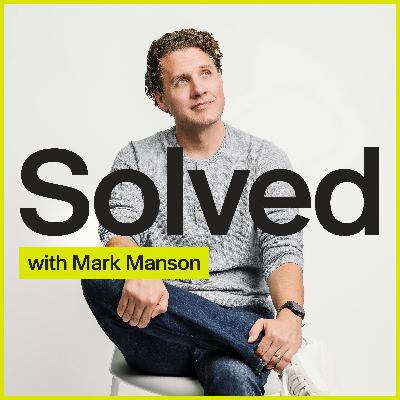
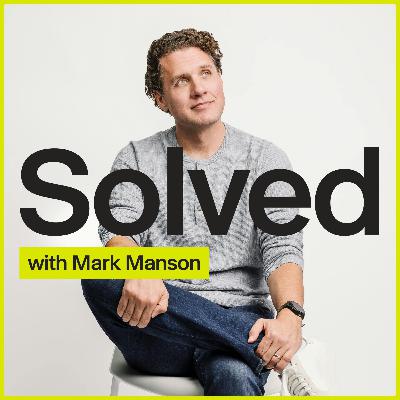
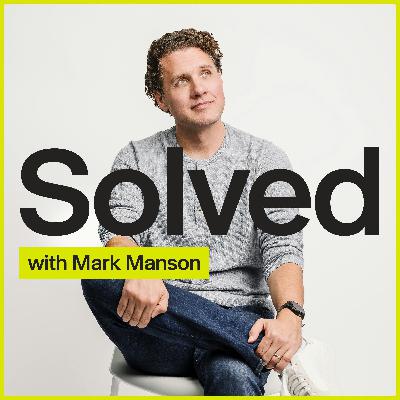
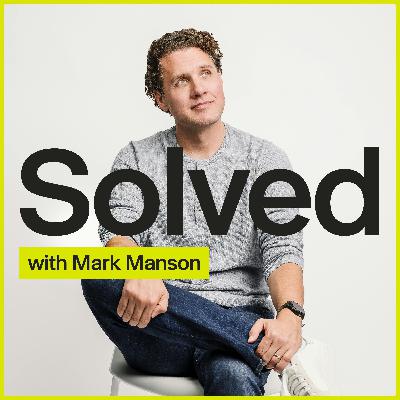
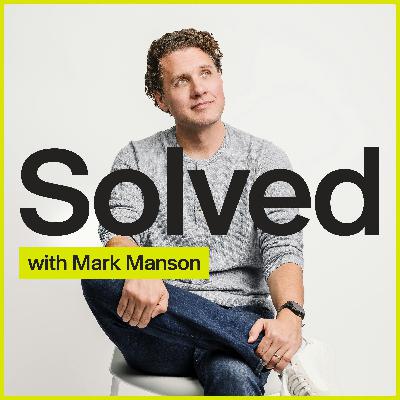
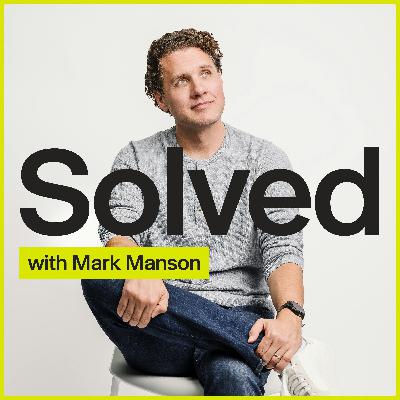
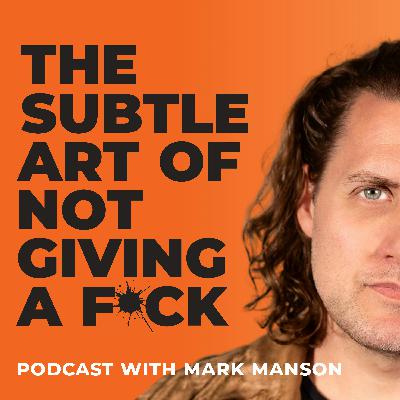
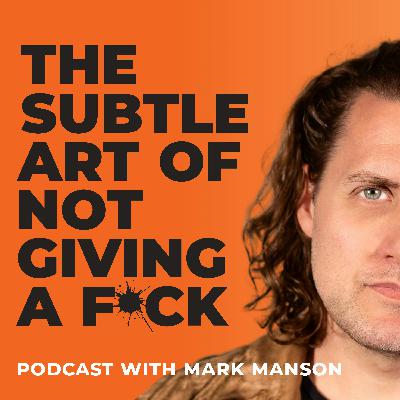
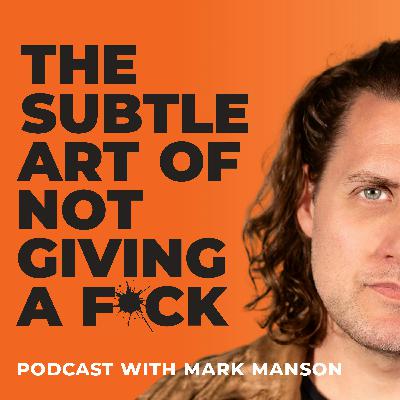
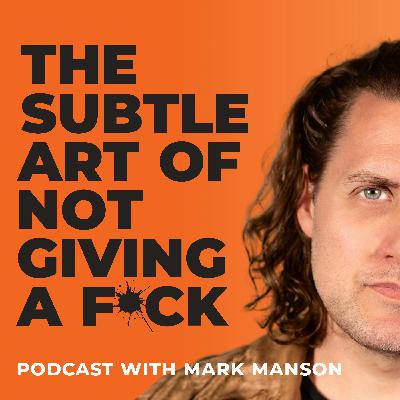
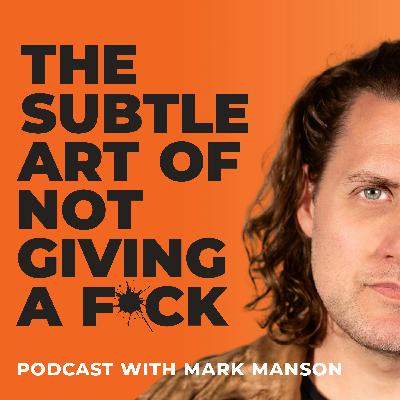
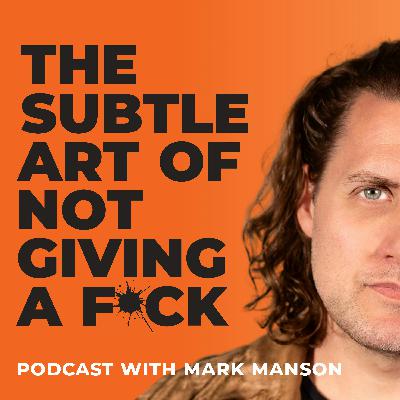
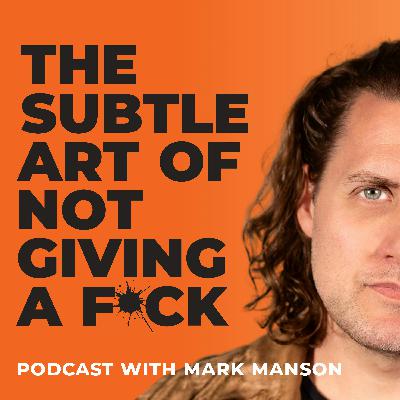
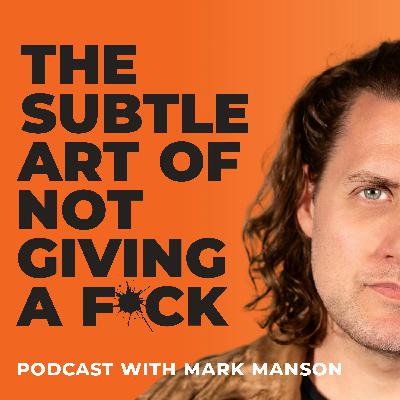
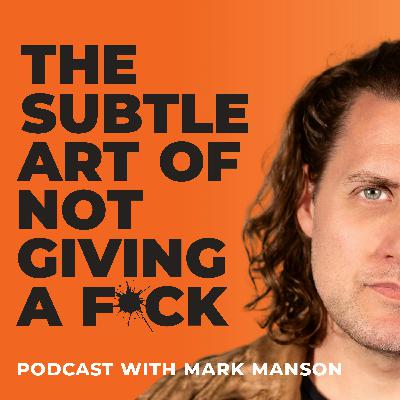
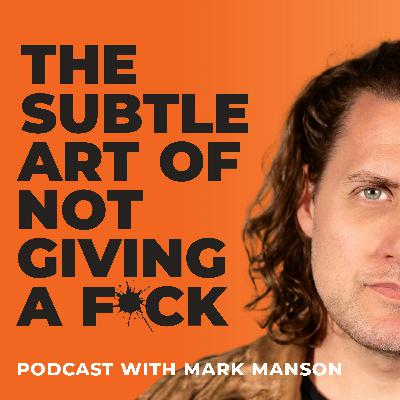



this podcast is the best to replace the majority of youtube self-help videos. you get a very deep understanding of the topic and then how to solve it focusing on the most important stuff (80/20) the personal things that mark and drew say about themselves makes you connect more and better 11/10 overall Just don't invite guests please. they don't add anything
I wanted to write a comment at the end of the episode. I'm still in the first 5 minutes, so I said why to procrastinate 🙃
beneficial 🫡
he said you meant what I know.
Thank you very much
👌👌👌
I find it awesome..😍
1 like lol
Great first episode.
mad respect!!
It won't play anymore
A fun conversation ⭐️⭐️⭐️⭐️⭐️
genuinely embarrassing episode. two people who have absolutely no knowledge of history, politics or people making verifiably false and absurd statements for an hour.
My new binge ⭐️⭐️⭐️⭐️⭐️
This was an episode that has validated my approach to my now happy life. Much gratitude!
So impressive 👍👍
A good foundation and background for asking the RURAL question. Is the phenomenon serendipitous or is it by design? And if it is by design, what is the objective, which is obvious. Just look at the results.
again, a good show, I would offer, however, again missing a fine point. DRUGS Speaking most specifically about chemical compounds that have psychotropic properties. Do not demonize drugs. Considering conservative ingestion, drugs can be fun, can be exciting, and can be intellectually stimulating. Obviously, they can be abused when over-consumed or ingested too often. The same can be said about sex. The same can be said about food. The same can be said about virtually every human endeavor.
so close to the bullseye, but meh.
It was so helpful like always. Thank you bro 💛